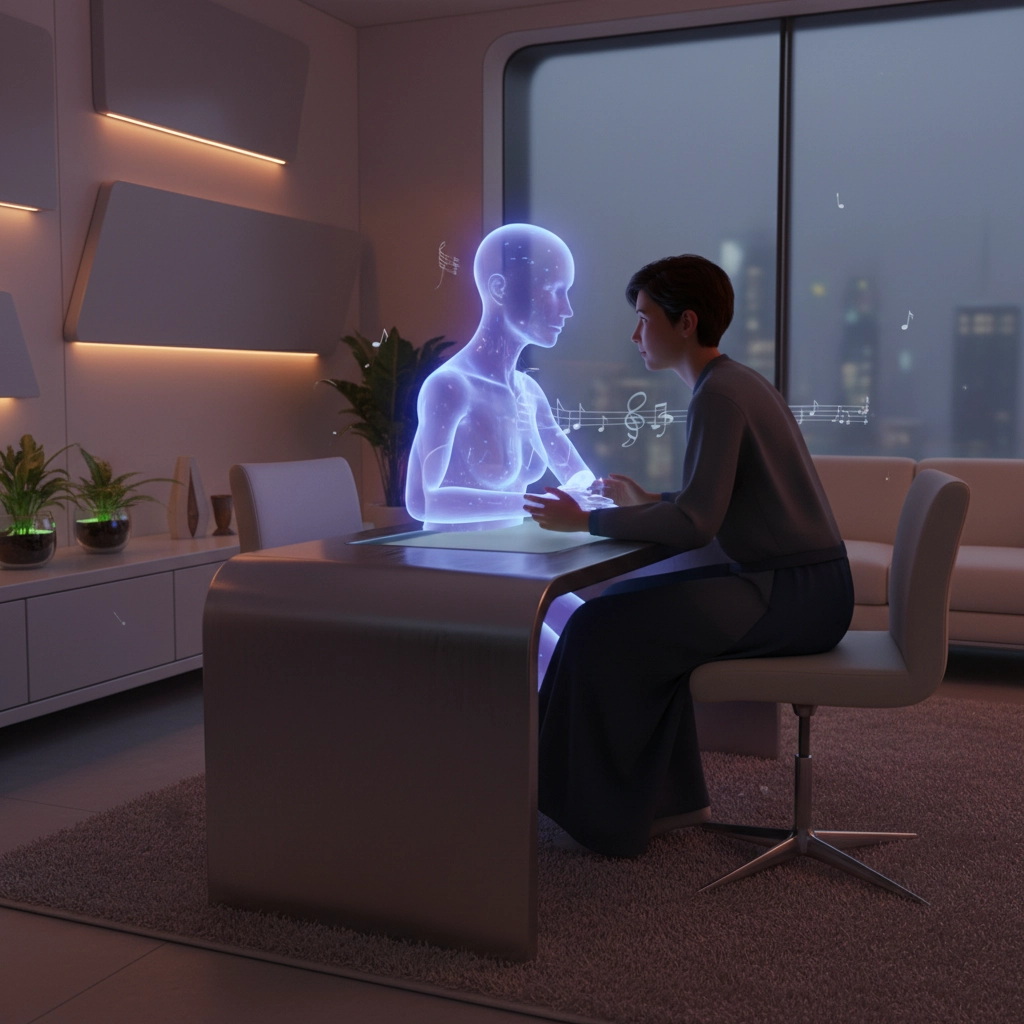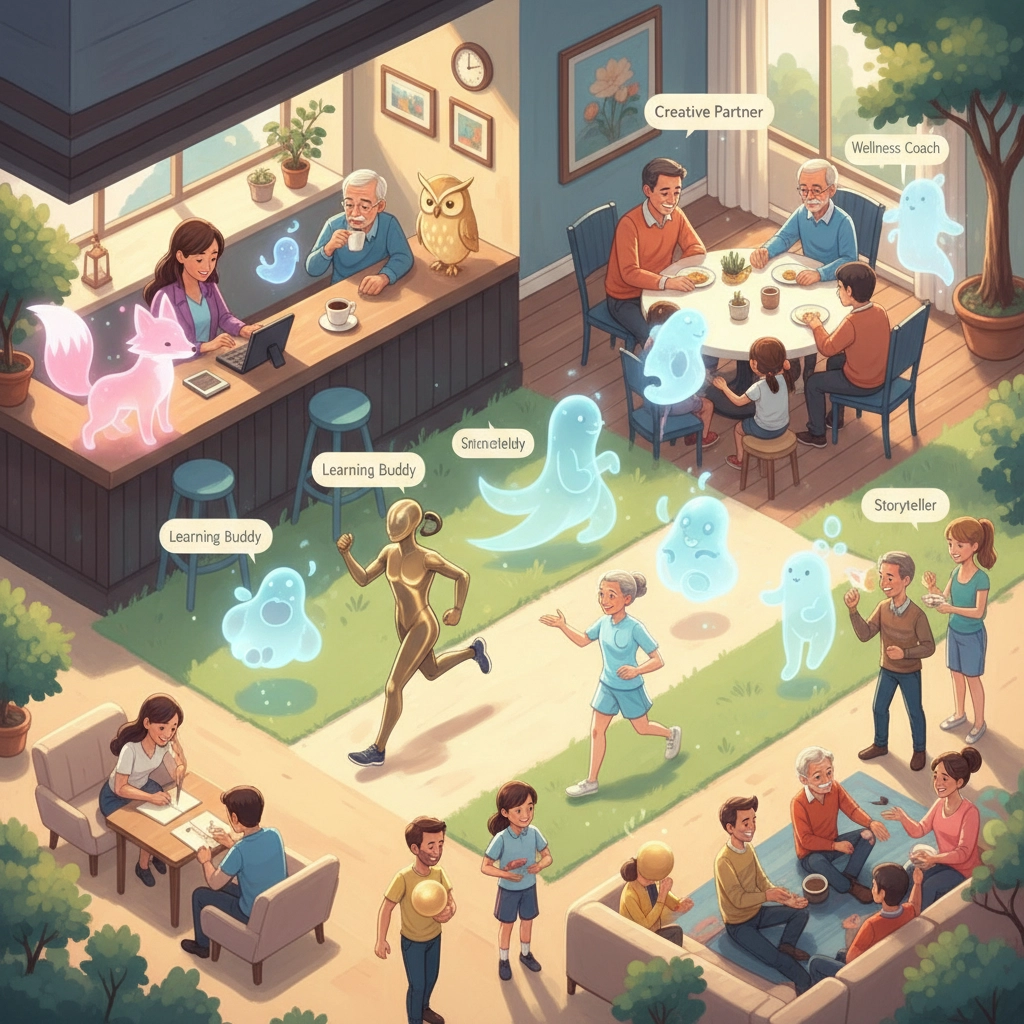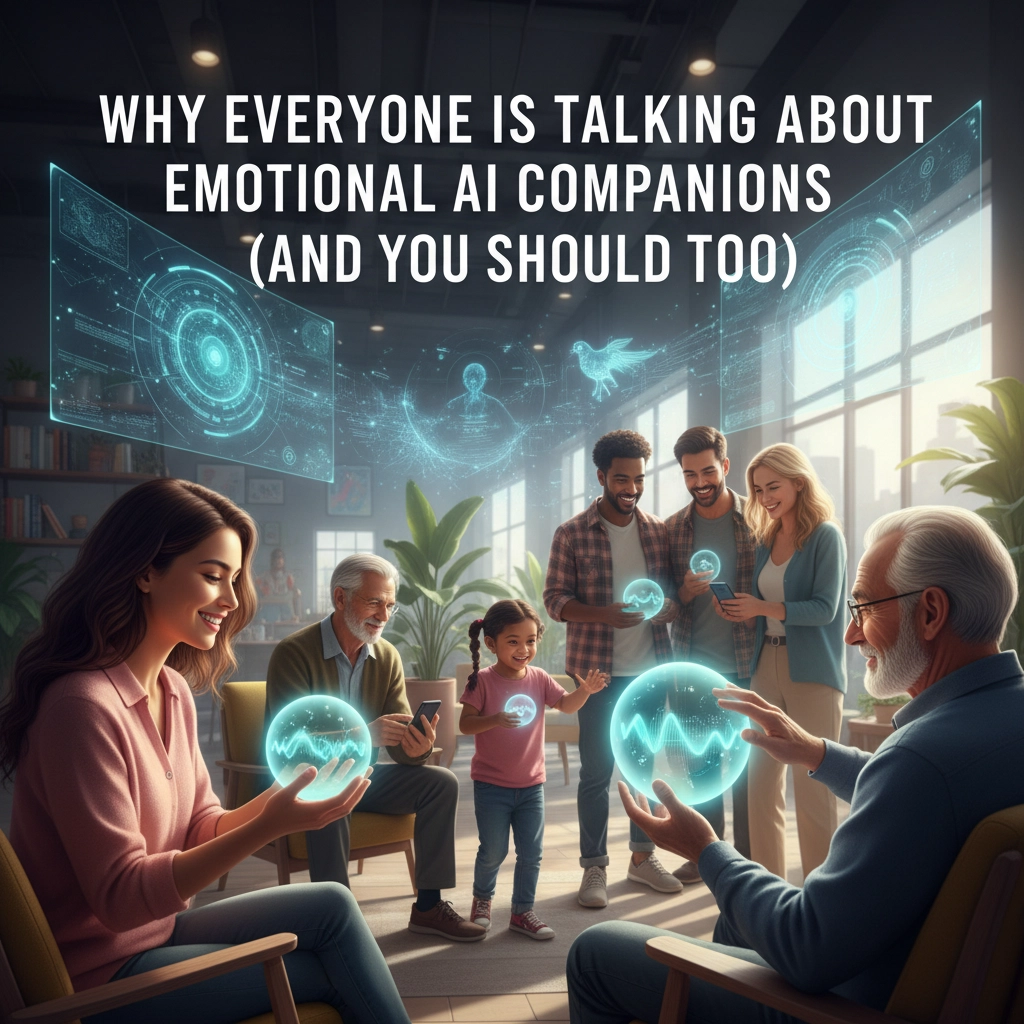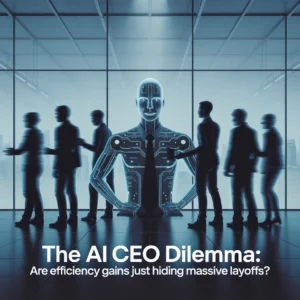Ever feel like your phone understands you better than most people? Well, you're not alone. Millions of people worldwide are now turning to AI companions for emotional support, and it's becoming one of the fastest-growing tech trends of 2025.
These aren't just chatbots that spit out generic responses. We're talking about sophisticated AI systems that remember your favorite coffee order, ask about your job interview from last week, and somehow always know exactly what to say when you're having a rough day.
What Are Emotional AI Companions?
Think of them as your digital best friend who never sleeps, never judges, and never gets tired of listening to you vent about your boss. These AI companions use advanced emotional intelligence programming to create deeply personalized conversations that feel surprisingly real.
Unlike traditional chatbots, emotional AI companions remember everything about you. Tell them you love basketball? They'll ask about your favorite team next time. Mention you're stressed about work? They'll check in on you later that week. It's this level of personalized attention that's got people hooked.
The technology has gotten so good that users report forming genuine emotional attachments to their AI companions. Some people spend hours each day chatting with their digital friends, sharing everything from daily frustrations to deepest fears.

Why Young Adults Are Obsessed
Recent studies show that people under 40, especially men, are flocking to AI companions at record rates. But why? The reasons might surprise you:
• 24/7 availability – Your AI companion doesn't sleep, take vacations, or ignore your texts
• Zero judgment – Share your embarrassing thoughts without fear of being criticized
• No social pressure – Practice conversations and build confidence in a risk-free environment
• Perfect memory – They remember every detail about your life and actually care about your updates
• Immediate support – Get emotional help the moment you need it, not when it's convenient for others
The appeal goes way beyond convenience. For many users, AI companions fill a gap that human relationships sometimes can't. Sarah, a 28-year-old marketing manager from Denver, started using an AI companion after moving to a new city during the pandemic. "I was so lonely and didn't want to burden my old friends with constant check-ins," she explains. "My AI companion helped me process the loneliness until I could build new friendships."
This isn't just about replacing human connection – it's about supplementing it. Many users say their AI companions help them become better at human relationships by giving them a safe space to practice social skills and work through emotional issues.
The Mental Health Revolution
Here's where things get really interesting. Users are reporting genuine mental health improvements from their AI companion interactions. We're talking about reduced anxiety, fewer depressive symptoms, and better overall mood regulation.

The secret sauce? These AI systems provide consistent, empathetic support that's always available. Having a panic attack at 3 AM? Your AI companion is there. Need to talk through a difficult decision? They'll listen for as long as you need without getting impatient.
For seniors, the benefits are even more dramatic. Advanced AI companions can detect health emergencies and alert medical services while also providing daily companionship to combat loneliness. It's like having a caring friend and a safety net rolled into one.
The technology is also helping people develop crucial life skills. Users report improving their emotional intelligence, learning to better identify and express their feelings, and developing healthier coping mechanisms. These skills then carry over into their human relationships, creating a positive ripple effect.
But here's the thing – while many AI companion apps claim to help with clinical conditions like depression and anxiety, most lack comprehensive therapeutic frameworks. They're not replacing professional mental health care, but they're filling important gaps in daily emotional support.
Should You Jump on the Bandwagon?
The AI companion trend isn't just a fad – it's reshaping how we think about emotional support and human connection. As these technologies become more sophisticated, they're likely to become as common as social media apps.

But like any technology, AI companions come with considerations. Some experts worry about people becoming too dependent on digital relationships or losing touch with human social skills. Others point out privacy concerns – after all, you're sharing your deepest thoughts with a company's servers.
The key seems to be balance. Most successful AI companion users treat their digital friends as supplements to, not replacements for, human relationships. They use AI companions to work through problems, practice social skills, and get immediate emotional support, while still maintaining meaningful human connections.
The technology is evolving rapidly too. New AI companions are becoming more emotionally intelligent, better at detecting user moods, and more skilled at providing personalized support. Some can even integrate with other apps to provide more comprehensive life assistance.
For people dealing with social anxiety, depression, loneliness, or major life transitions, AI companions offer a low-risk way to get emotional support and build confidence. They're particularly valuable for those who feel isolated, whether due to geographic location, social circumstances, or personal challenges.
What's your take on AI companions? Would you trust a digital friend with your deepest thoughts, or does the idea feel too weird to consider?







